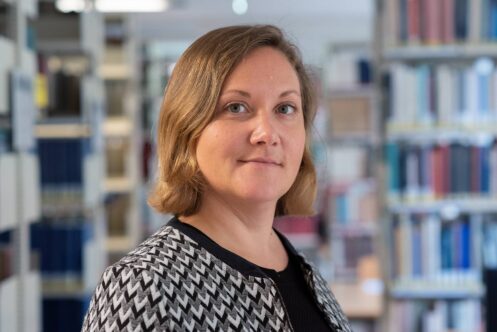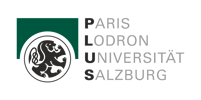Mag. Dr. Maria Schreiber
Post Doc Division Media Use and Digital Cultures

Room: mezzanine 009, Rudolfskai 42, 5020 Salzburg
Office hours: by appointment
Phone: +43 (0)662 8044-4186
Mail: maria.schreiber@plus.ac.at
Maria Schreiber is a postdoctoral researcher for the Department of Communication Studies at the University of Salzburg. She holds a PhD in Journalism and Communication Studies from the University of Vienna. As a fellow of the Austrian Academy of Sciences, she was part of the interdisciplinary DOCteam project “Picture Practices”. She was a guest researcher at the research training group “Visibility and Visualization” at the University of Potsdam and at the Digital Ethnography Research Center at RMIT University in Australia.- Visual communication research, visual study/image science
- Media use in everyday life, media biographies
- Digital media cultures and internet research
- Qualitative, reconstructive social research
- ECREA (European Communication Research Association) – Temporary Working Group Visual Culture (Member of Steering Committee)
- Sorority – Austrian Women’s Network (Board Member)
- Visual Studies in the Social Sciences – Research Focus at the University of Vienna
- AoIR – Association of Internet Reseachers
- IVSA – International Visual Sociology Association
- DGPuK – Section Visual Communication
- GfM – Society for Media Studies
- CES – Center for Qualitative Evaluation and Social Research
The current research documentation can be found here.
Notes on master’s examinations at Maria Schreiber – Applies to first examinations and second examinations.
Topics
You discuss the examination topic with the examiner: You should choose it according to your interests and focal points. Use my subject areas as a guide. However, examination topics can be chosen from the whole range of the subject.
Internet and Social Media: History, Cultures, and Usage e.g., foundational texts on the Internet and social media, theoretical perspectives and concepts, empirical studies on general usage as well as specific cultures and platforms, hardware, and software;
Visual communication e.g. theoretical foundations, topics of visual communication, methods of visual communication research, empirical studies on the production, reception and circulation of images and visual media.
Literature list
After an initial discussion (with references to literature), candidates compile an initial list of 7-8 titles (chapters from books or essays). This is then presented to the examiner: The examiner comments, asks for additions if necessary and confirms
⇒ The total length should be 150-200 pages.
Thesis paper
Compile a one- to two-page thesis paper for each text (with the most important points, including your criticism of them). Then send this to the examiner in a file one week before the exam.
⇒ Length of thesis paper (1-2 p. per text) total 14 to max. 20 pages.
⇒ Thesis paper deadline: one week before the examination (in one file).
Examination
The examination lasts 45 minutes. Both examiners have 20 minutes each. The chairperson begins with a welcome and moderates the examination.

